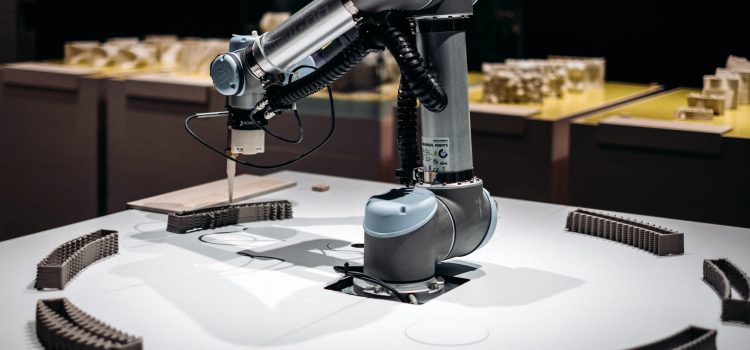
Have you ever wondered who the masterminds behind some of the world’s greatest inventions are? From light bulbs to airplanes, inventors have shaped our daily lives in ways we often take for granted. However, these innovators were not always recognized for their contributions. In fact, many inventors struggled with obscurity and financial hardship before achieving success. In this blog post, we will explore how the invention industry is evolving and discuss strategies that aspiring inventors can use to achieve fame and recognition for their work. So sit back, grab a cup of coffee and join us on a journey from obscurity to fame in the fascinating world of invention!
How Inventors Are Being Forgotten
In today’s fast-paced world, it is easy to forget the contributions of inventors who have changed our lives. Often overshadowed by celebrities and politicians, many innovators are struggling to gain recognition for their work. This is particularly true for inventors from marginalized communities or those without access to resources.
Moreover, in certain industries, such as technology, innovation moves so quickly that yesterday’s breakthroughs are quickly forgotten. Companies focus on creating the next big thing rather than acknowledging past accomplishments.
This lack of recognition can have negative consequences not only for individual inventors but also for society at large. It discourages young people from pursuing careers in science and engineering and contributes to a culture that values fame over substance.
It is important that we make a conscious effort to recognize the contributions of inventors throughout history and celebrate modern-day innovators who are making a difference in our lives today.
The Inventor’s Dilemma
Inventions are often born out of necessity, but the road to success for inventors is fraught with challenges. The “Inventor’s Dilemma” refers to the struggle that many inventors face when trying to turn their ideas into reality.
One challenge is finding funding for their projects. Many investors are hesitant to take risks on new inventions, especially if they don’t fit neatly into an existing market or industry. This can make it difficult for inventors to get the capital they need to develop and produce their products.
Another obstacle is navigating the patent process. Obtaining a patent can be a long and expensive endeavor, and there is no guarantee that it will ultimately protect an inventor’s idea from being copied or stolen.
Even once a product has been developed and patented, marketing it effectively can be another hurdle. Many successful inventions have failed simply because they weren’t marketed properly or didn’t reach the right audience.
Despite these challenges, however, many inventors continue to persevere in order to bring their ideas to fruition. With determination and innovation, they are changing how we live our lives and shaping our future in ways we never thought possible.
How Invention Is Changing
The realm of invention is constantly changing, evolving with each passing day. The way we invent things today is vastly different from how it was done even just a few decades ago.
One of the most significant changes in invention has been driven by technology. Digital tools and platforms have made it easier for inventors to create prototypes, test concepts, and bring their ideas to life faster than ever before.
In addition, the rise of collaborative networks and open-source communities has created new opportunities for inventors to share knowledge and collaborate on projects across borders and industries.
Another key change in invention involves the focus on sustainability. As environmental concerns continue to grow, more inventors are looking for ways to create products that not only meet consumer needs but also reduce waste or use renewable resources.
There is an increasing emphasis on user-centered design – creating inventions that address real-world problems faced by people every day. This approach requires a deep understanding of user needs through research and observation.
Invention continues to evolve rapidly as technology advances and societal values shift towards sustainability and human-centered design.
How to Succeed as an Inventor
Succeeding as an inventor can be a daunting task, but it is not impossible. Here are some tips to help you achieve success in the field of invention.
First and foremost, believe in yourself and your ideas. Many great inventions were once thought to be impossible or impractical before they became successful products. Don’t let doubt hold you back from pursuing your dreams.
Secondly, do thorough research on your area of interest and potential market demand for your idea. A good understanding of the industry will help you identify gaps that need filling and provide insight into potential customers.
Thirdly, seek feedback from experts in the field or potential consumers through surveys or focus groups. This will give you invaluable insights into what people like about your idea, what needs improvement, and how to position it effectively.
Protect your intellectual property by securing patents early on in the process. This will ensure that no one else can steal or copy your idea without legal repercussions.
By following these tips and staying dedicated to innovation, any aspiring inventor has a chance at achieving success in their chosen field.
The Importance of an Accomplished Education
Having an accomplished education is essential for inventors who aim to succeed in their field. While natural talent and creativity are important, having a solid educational foundation can help inventors develop the skills they need to bring their ideas to fruition.
A good education provides inventors with a broad range of knowledge that can assist them in identifying new problems and developing innovative solutions. It also offers them access to resources such as research tools, laboratory equipment, and technical expertise that can enable them to turn their ideas into practical inventions.
In addition, an accomplished education teaches inventors vital problem-solving skills that are crucial for successful innovation. They learn how to analyze complex issues, identify potential obstacles, and devise strategic plans for overcoming challenges.
Moreover, having a strong academic background helps inventors communicate more effectively about their work. Whether it’s presenting at conferences or pitching products to investors, being able to articulate complex concepts clearly is critical for gaining recognition and support from others in the industry.
Ultimately, while there have been examples of self-taught inventors achieving success without formal education backgrounds; however those cases are rare exceptions rather than the norm – highlighting the importance of pursuing an accomplished education if you aspire towards innovation within your field.
The Role of Technology in Invention
Technology has always played a crucial role in the invention process, and it continues to do so today. With advancements in technology happening at an unprecedented pace, inventors now have access to tools that were once unimaginable. These tools enable them to bring their ideas to life faster and more efficiently than ever before.
One of the most significant ways technology has aided inventors is through computer-aided design (CAD) software. This software allows inventors to create 3D models of their inventions with remarkable precision and detail. It also enables them to run simulations on those models, which helps identify any flaws or issues before they build a physical prototype.
Another way technology is making invention easier is through the rise of crowdfunding platforms like Kickstarter and Indiegogo. These platforms allow inventors to raise funds without going through traditional channels like banks or venture capitalists. This democratization of funding means that anyone with a good idea can get the financial backing they need without having connections or deep pockets.
Technology has made it possible for inventors from all over the world to collaborate seamlessly on projects. Through video conferencing, cloud storage services, and other digital collaboration tools, teams can work together even if they are thousands of miles apart.
There’s no doubt that technology has transformed what it means to be an inventor today by providing better communication channels between team members working remotely; access CAD software for detailed designs; plus other resources such as crowdfunding sites giving new entrepreneurs opportunities when seeking start-up capital – all while helping people turn their innovative ideas into functional prototypes faster than ever before!
The Importance of Patents
Patenting an invention is the process of securing exclusive rights to manufacture, use and sell your product or idea. Patents are an essential aspect of protecting your intellectual property as they provide legal protection against infringement by competitors. Patenting also adds value to your invention, making it more attractive to investors and potential buyers.
A well-drafted patent can help you secure a competitive advantage in the market by preventing others from copying or stealing your idea. It also helps establish credibility and legitimacy for the inventor, which can be beneficial when seeking funding or partnerships.
Patent applications require careful consideration and attention to detail. A poorly written application may not stand up in court if challenged or could lead to misunderstandings about what is protected under the patent.
It’s important for inventors to work with attorneys who specialize in patents during this process as they have experience navigating complex legal requirements and regulations surrounding intellectual property law.
Obtaining a patent is critical for inventors looking to protect their ideas while adding value and credibility to their inventions.
Conclusion
The world of invention is rapidly evolving and being recognized as a vital part of our society. Inventors are no longer working in obscurity but instead are becoming more visible and celebrated for their contributions to humanity. With education, technology, patents, and perseverance inventors can succeed in bringing their ideas to life.
As we move forward into an increasingly innovative future, it is important that we continue to support inventors and encourage creativity. By doing so, we will be able to unlock new solutions to the challenges facing society today and create a better tomorrow for all. So let us celebrate these unsung heroes who make our lives easier every day through their brilliant inventions!










